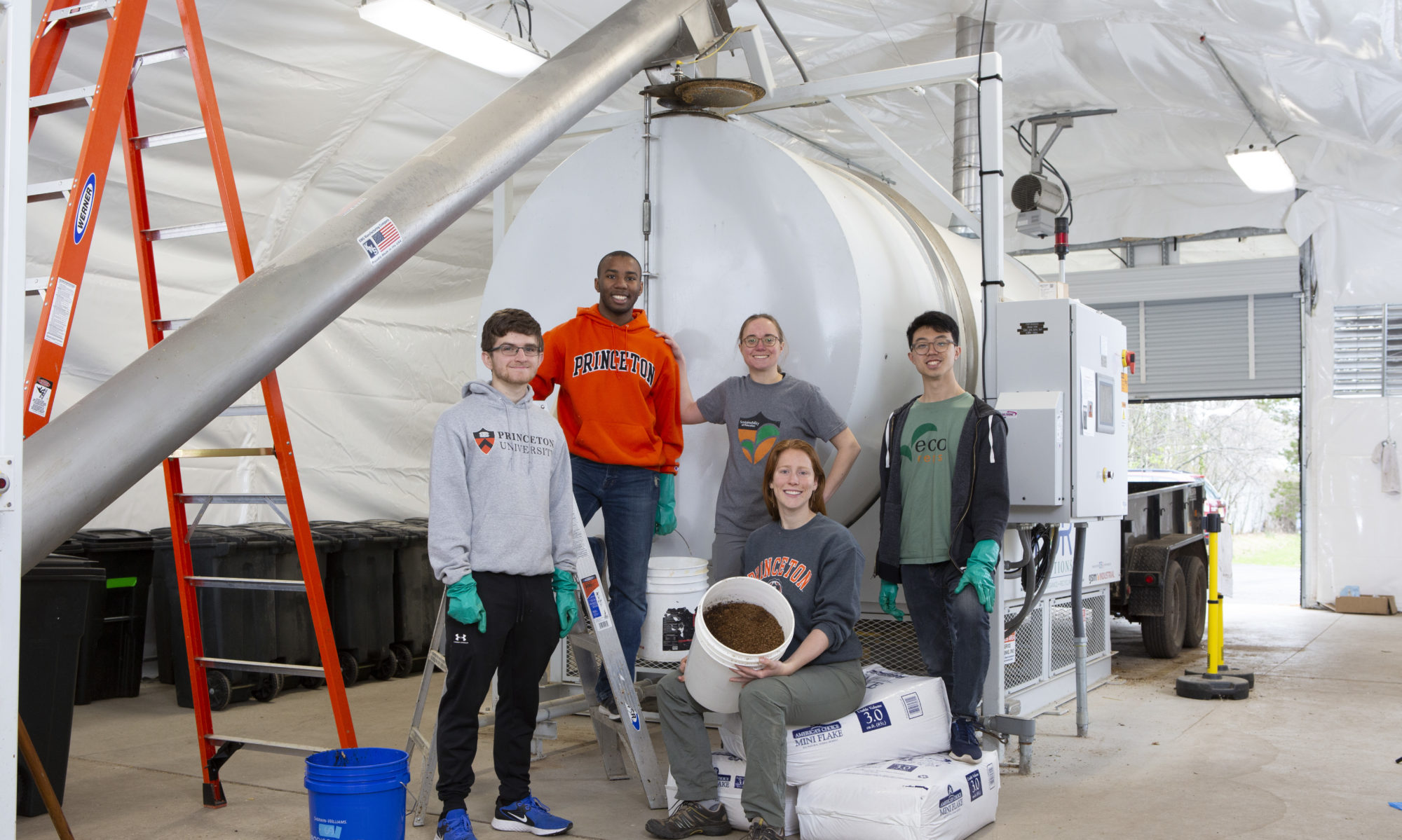In this ComPOSTer, we provide an update on our facility relocation and highlight an interesting upcoming webinar on Wasted Food Solutions and more composting-related current events.
SCRAPPY on the move

Efforts are underway to move the composting system into the reconstructed facility. Pictured above is a forklift transporting “SCRAPPY” from its storage location to the facility where it will be placed on the elevated slab below

Wasted Food Solutions Webinar

Join this virtual workshop co-hosted by the Center for EcoTechnology (CET) and New Jersey Composting Council (NJCC) to learn about strategies for implementing wasted food prevention, donation, and diversion programs in businesses in the food service sector. Although specific to New Jersey and its Food Waste Law, participants will leave with an understanding of the next steps for building wasted food management into their operations and gain access to digital resources and guidance documents. All attendees will also have access to free one-on-one support from CET, which will take place in the last hour of the workshop.
In the News
The Global Methane Pledge was introduced recently as an ambitious plan to slash global methane emissions 30 percent by 2030.
The pledge is a big step for limiting the potent greenhouse gas, but critics are quick to point out that the pledge fails to address limiting emissions from the largest source of methane globally — agriculture.
- The pledge only promises to incentivize “the deployment of improved manure management systems, anaerobic digesters, new livestock feeds, composting, and other practices.”
- In the U.S., the Biden administration plans to pose direct restrictions on the oil and gas industry, but only voluntary adoption measures with the agriculture sector.
- Meanwhile, environmental justice groups believe the solution lies in transitioning away from the large-scale livestock operations that are one of the biggest contributors of methane emissions. These facilities dump manure into large “lagoons” which creates unsafe air and groundwater in the disproportionately Black, Latino, Indigenous, and white rural surrounding communities.
As an alternative solution, New Jersey Senator Cory Booker reintroduced the Farm System Reform Act, which imposes a moratorium on these industrial facilities and creates federal financial assistance for farmers to transition to pasture-based dairy and hog farming.
Read more: There’s a major gap in the new methane pledge: Agriculture
NOTE: If managed properly, grass-fed animal operations can be a more sustainable option and healthier to nearby communities, however the scientific community is still in debate over whether pasture-raised systems (in particular beef), are consistently more climate-friendly than industrial beef.
